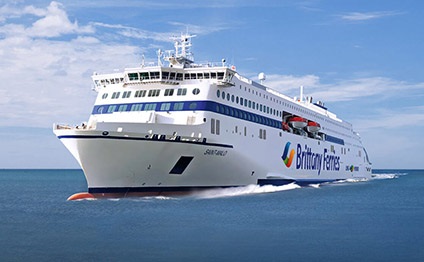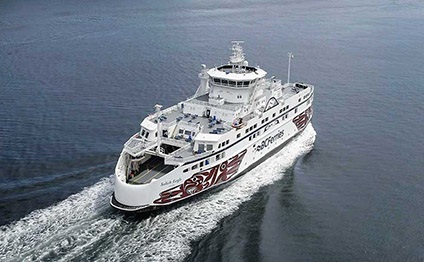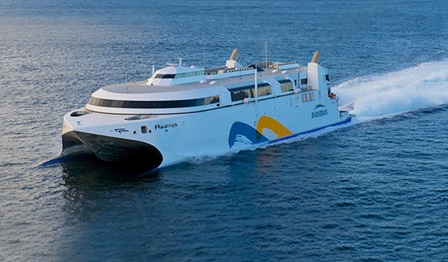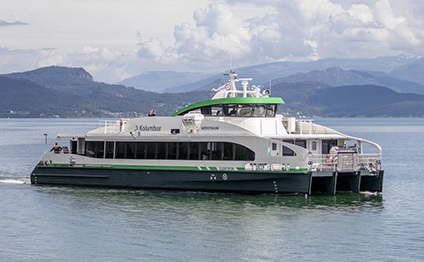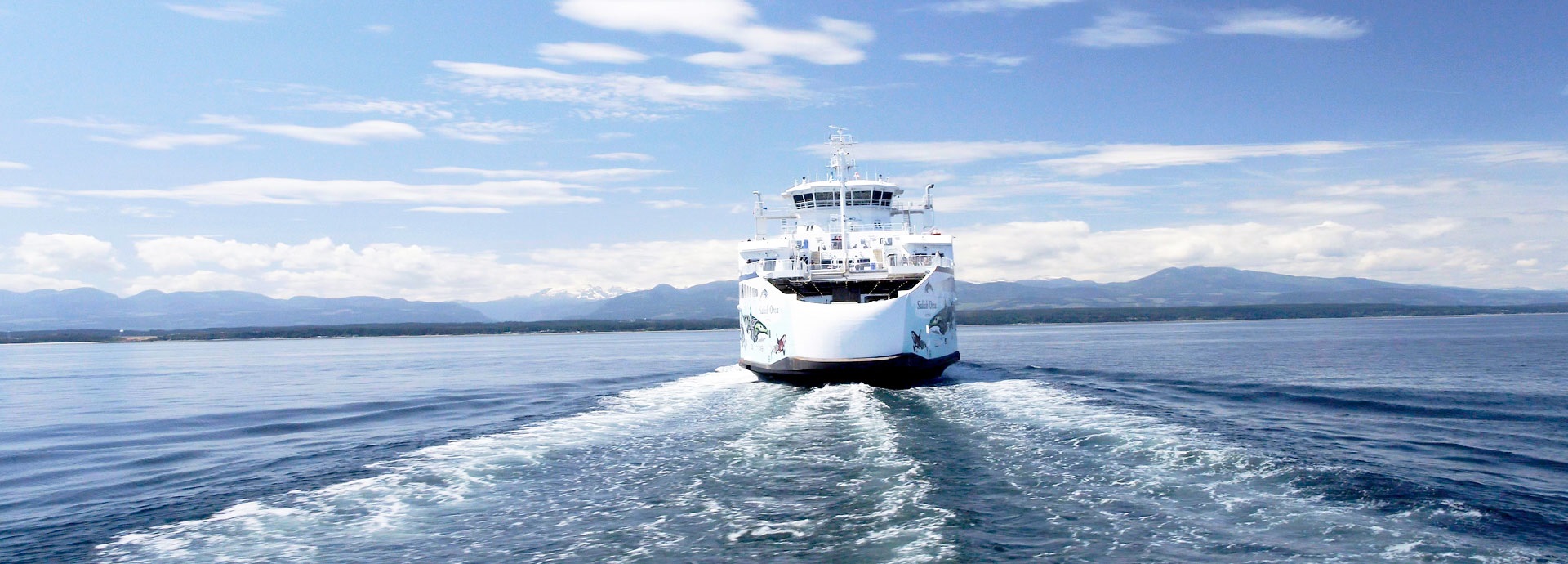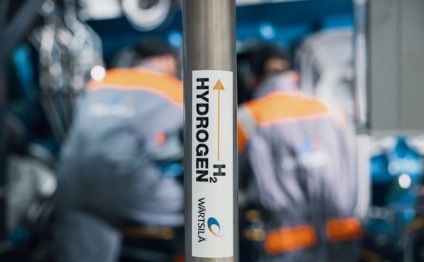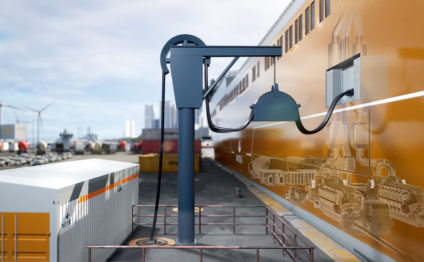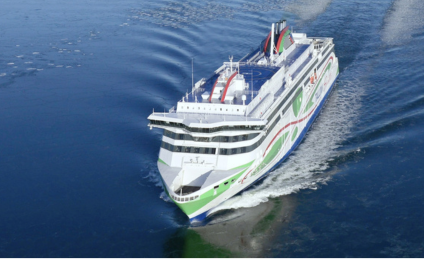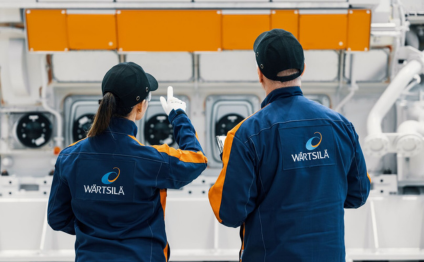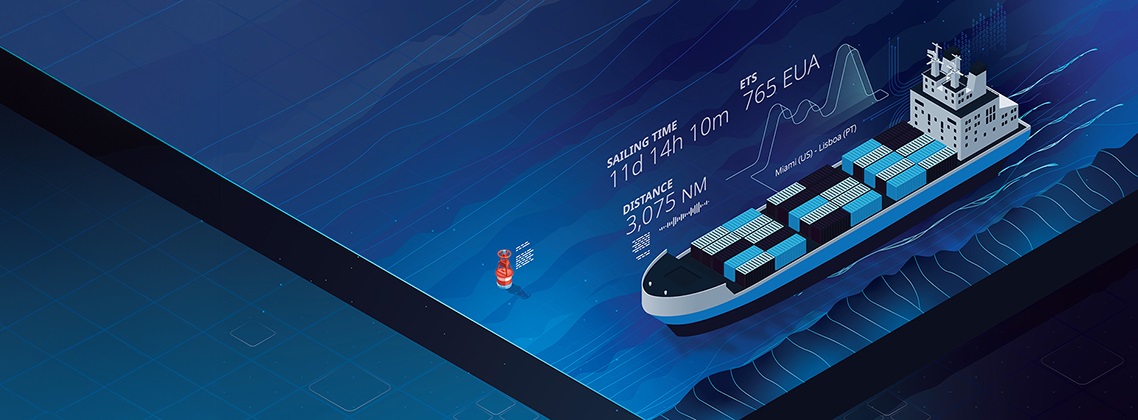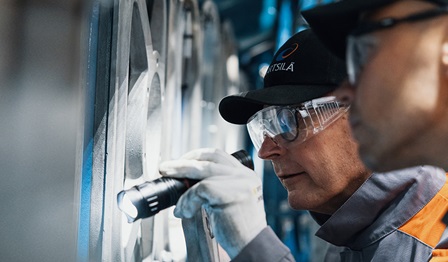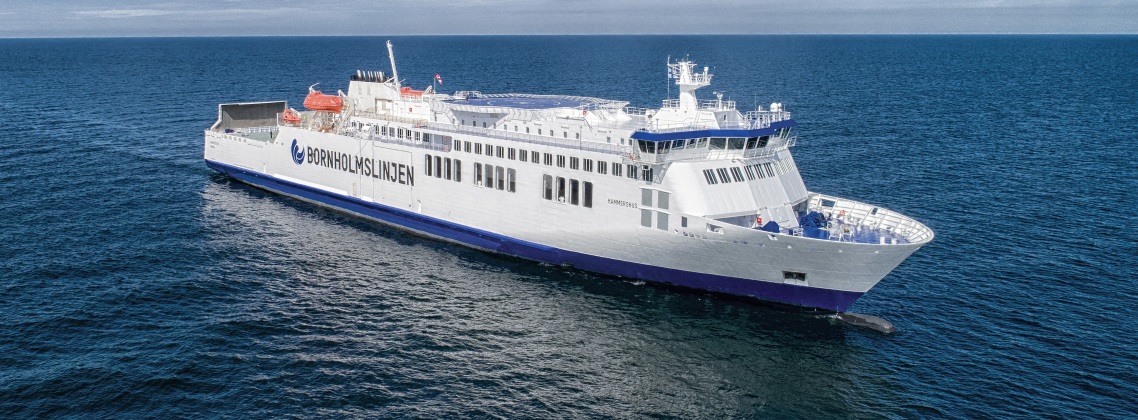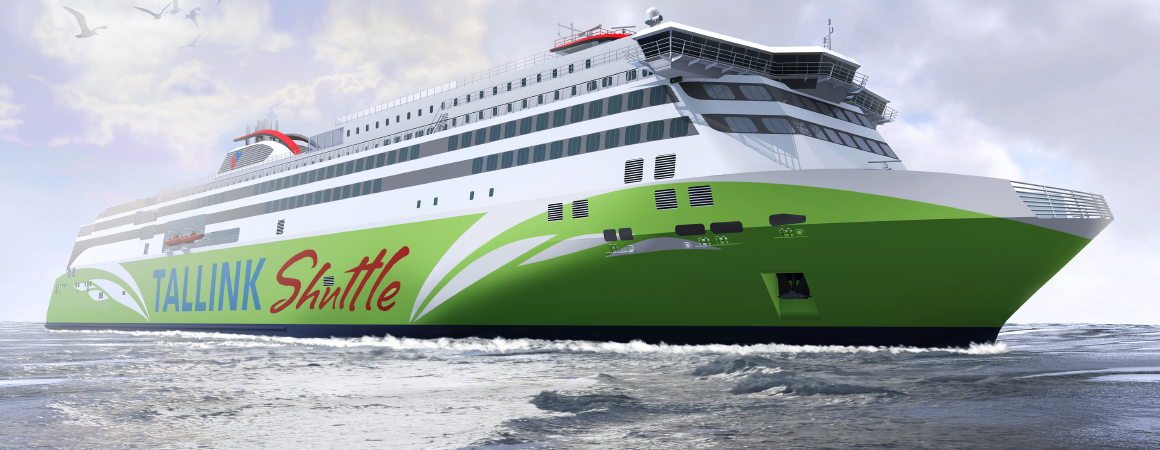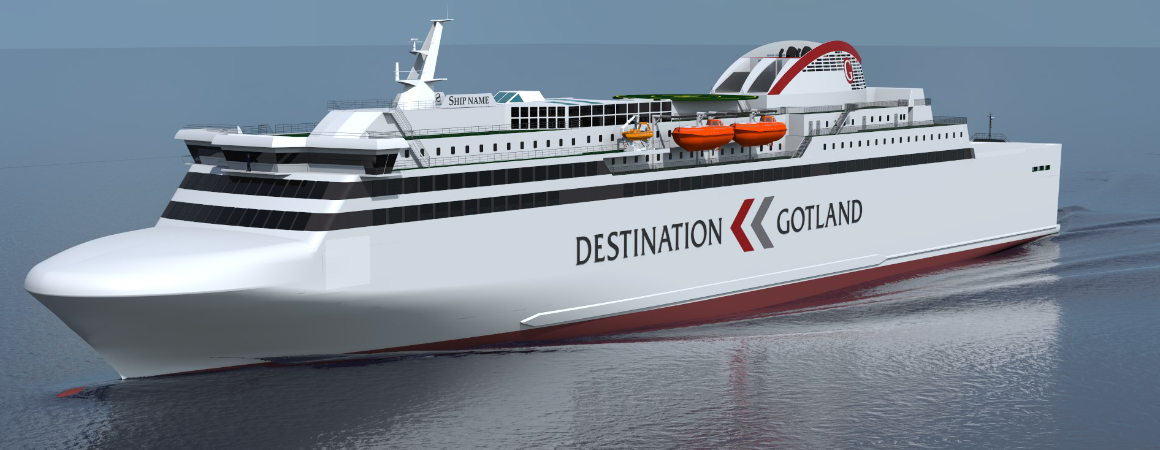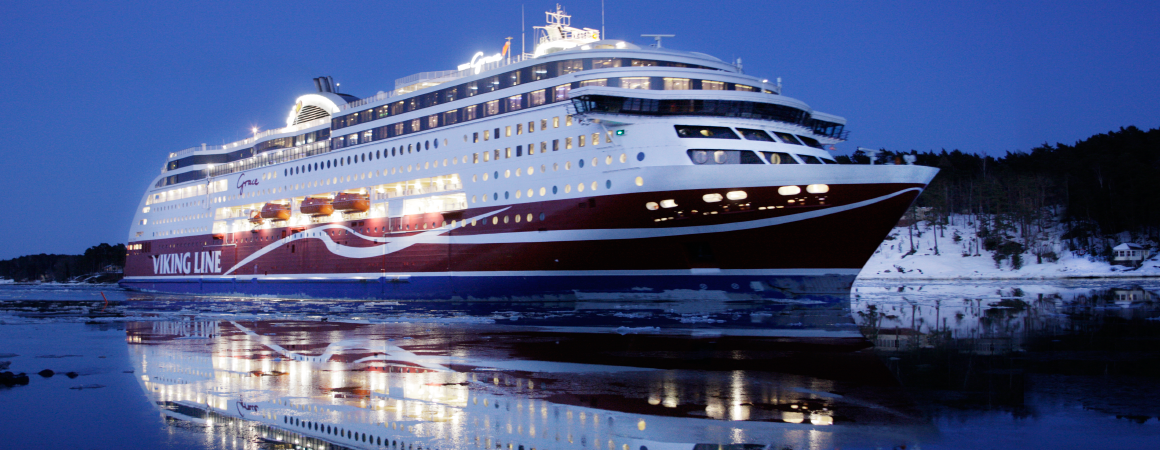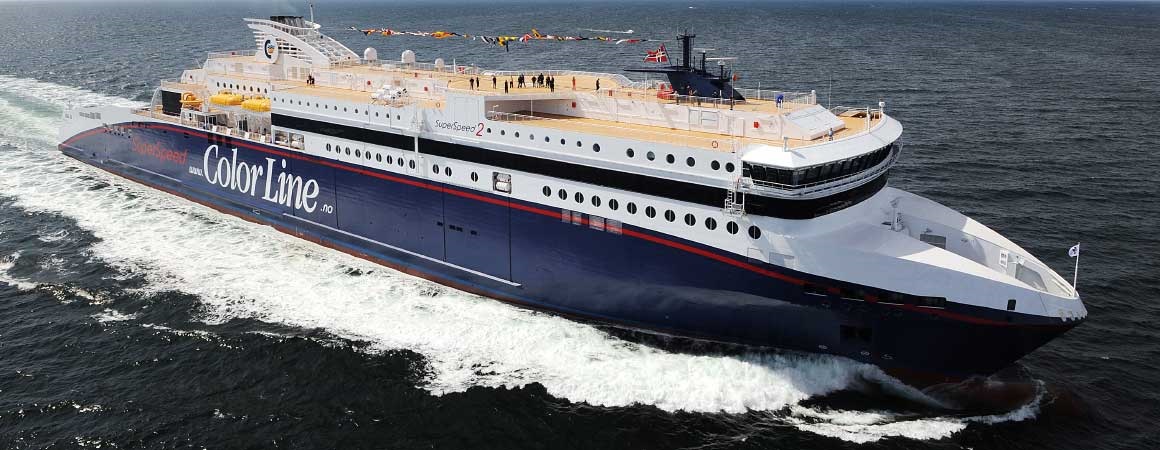

Ferry engines, propulsion solutions and more
Ferries have a huge role to play in meeting the growing demand for environmentally sustainable transport options. Their dramatically different vessel sizes, configurations and profiles require different approaches to decarbonisation. One approach would be to adopt or retrofit fuel-flexible ferry engines to be able to use alternative, low-emission fuels. Other options include implementing a shore power connection, choosing a hybrid solution, or setting up integrated efficiency technologies onboard.
Choose your vessel type and learn more about the most suitable solutions.
Customer insights on sustainable ferry operations
The ferry sector is spearheading whole marine industry’s journey towards zero-carbon operations. Discover the valuable insight from four forward-thinking professionals from the sector.
How to achieve successful decarbonisation
Robert Clifford, Founder and Chairman of Incat Group offers a simple solution for successful decarbonisation of ferry lines – but for one missing link. What is it?
Solving the decarbonisation challenge
Roberto Prever, CEO, NAOS Boat & Ship Design on the challenge of decarbonisation. Which fuel does he bring up and what does he say about it? What is his simple advice to owners at the end?
Achieving sustainable ferry operations
Christer Bruzelius, Senior Partner, Gotland Tech Development on the challenge to achieve sustainable ferry operations. He mentions something that may be surprisingly easy – and something that is going to be difficult for certain. What are his views on how to solve the challenge?
The biggest challenge facing ferry lines
Luke Pretlove, Technical Manager, Austal on the biggest challenge facing ferry lines today. What does he mention as the hardest thing for yards and operators? And what advice does he give to operators and owners?
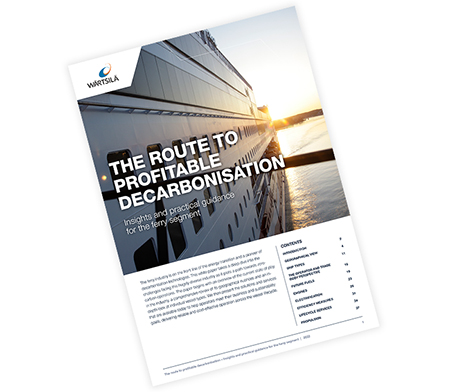
White paper: The route to profitable decarbonisation
Complement the webinar with an extensive white paper
Download this paper and learn how to meet the challenges that the diverse ferry industry has on its route towards zero-carbon operations. Insights and practical guidance for the ferry segment, complete with an in-depth look at individual vessel types.
Ferry engines and waterjets for newbuilds
Choose from a wide range of Wärtsilä engines – Wärtsilä 31DF, Wärtsilä 46TS-DF or Wärtsilä 32 methanol engine, for example – and you will get the features and capabilities that are the right fit for your ferry. All Wärtsilä engines have been designed for easy maintenance and to offer low lifecycle cost. They are ready for hybrid solutions and easy to upgrade to run on alternative fuels.
Wärtsilä also offers medium-size and modular waterjets suitable for high-speed ferries. The portfolio features units from 500 kW at the low end of the scale up to units with around 10 MW for large RoPax fast ferries.
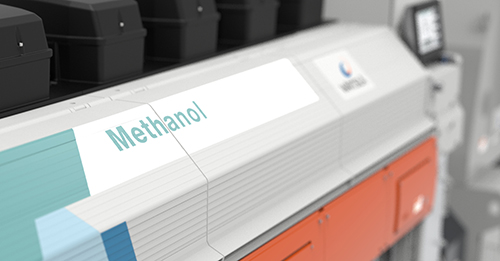
Upgrades and retrofits for decarbonised ferry operations
Choose an engine conversion package that will make your ferry ready for alternative future fuels: methanol conversion, LNG conversion for 4-stroke engines or LNG conversion for 2-stroke engines. Fuel supply packages are also available, MethanolPac for methanol, and LNGPac for LNG.
Adopt propulsion energy saving technology from Wärtsilä. Your ferry will save fuel thanks to its improved efficiency. This will also help comply to environmental regulations.
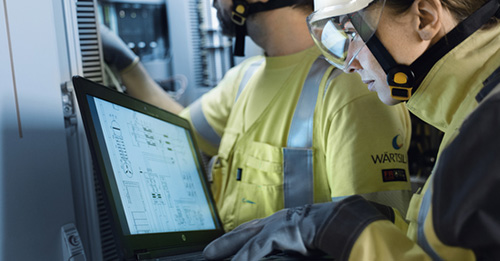
Lifecycle services in the ferry business
A Lifecycle Agreement with Wärtsilä can deliver you true peace of mind. Benefit from AI-powered solutions and predictive analyses together with expert knowledge. You can rest assured that your ferry will perform optimally and sustainably.
The scope of agreements can be tailored to fit your needs, to cover anything from ferry engines and power trains to propulsion solutions, fuel supply systems, and emission abatement technologies.
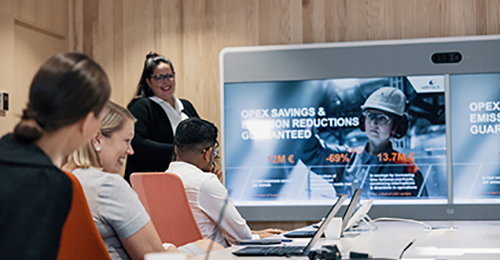
Ferry fireside chat series
The Ferry fireside chats are analytical discussions on the issues raised in the ferry industry and in-depth updates on the future of ferry operations. These are insights gathered from the industry’s thought leaders who will help uncover the challenges, deep dive into the solutions available and find the route towards a zero-carbon future. All episodes hosted by Gina Panayiotou.
Important insights
Discover these hand-picked articles to learn about the many solutions for decarbonised and profitable ferry operations.
Customer stories from the ferry industry
Discover the benefits others have already gained from choosing Wärtsilä.
Latest news for the ferry industry
Wärtsilä retrofit will reduce environmental impact of ferry operating in ecologically sensitive waters
The technology group Wärtsilä will carry out an important retrofitting project aimed at lessening the environmental footprint of a ferry operating on the Wadden Sea, a UNESCO World Heritage listed area in the south eastern end of the North Sea.
The area features high biological diversity and is important for breeding and migrating birds. The retrofit will enable the ‘Münsterland’, a RoPax ferry owned by German operator Aktien-Gesellschaft ‘Ems’ (AG Ems), to utilise liquefied natural gas (LNG) as fuel, thereby completely eliminating its emissions of sulphur oxides (SOx) and particulates, while significantly reducing its nitrogen oxide (NOx) emissions. The order with Wärtsilä was placed in July 2019.
The work will take place at the Koninklijke Niestern-Sander B.V. yard in the Netherlands. The yard has facilities for shipbuilding and repairs under one roof, and will use these facilities to build a completely new aftship to accommodate the Wärtsilä LNGPac fuel storage, supply, and control system. This fitting of the new aftship is scheduled to commence in September 2020.
A similar retrofitting project was carried out in 2015 on the ‘Ostfriesland’, a sister ship to the ‘Münsterland’, and the success of this project was cited as a prime consideration in the award of this subsequent contract.
“There is no greater endorsement of customer satisfaction than repeat orders, and we are delighted to have again been selected to convert an AG Ems owned ferry to LNG fuel operation. The project is fully in line with our Smart Marine approach that emphasises greater efficiency and better environmental performance for customers, as we lead the industry’s transformation into a new era of opportunity,” says Matthias Becker, Managing Director, Wärtsilä Deutschland GmbH.
“Operating our vessels in the most ecologically friendly way possible is of the utmost importance to us. Wärtsilä’s technology is already known to us, so we had no hesitation to contract them again to retrofit the ‘Münsterland’ to allow it to operate without restrictions in the SECA and NECA sulphur and nitrogen oxide controlled areas,” says Bernhard Brons, Managing Director of AG Ems.
The vessel will be fitted with two Wärtsilä 20DF dual-fuel generating sets and a Wärtsilä LNGPac system. In addition to the environmental benefits, significant operational cost savings and an increase in overall vessel efficiency are the expected outcomes of the project. Delivery of the Wärtsilä equipment will commence in spring 2020, and completion of the retrofitting is anticipated during Q1 2021.
In addition to the retrofitting of these two ferries, the owners have also earlier ordered via a subsidiary company, Cassen Eils, a full Wärtsilä dual-fuel package for LNG operation for the ferry ‘Helgoland’. The ship entered service in 2015.
Image caption: The German ferry ‘Münsterland’ will be retrofitted with a package of Wärtsilä LNG solutions to minimise its environmental footprint. Copyright: Aktien-Gesellschaft ‘Ems’ Photographer: Peter Andryszak.
Media contacts:
Mr Matthias Becker
Managing Director
Wärtsilä Deutschland GmbH
Tel: +49 162 1006938
matthias.becker@wartsila.com
Ms Marit Holmlund-Sund
General Manager, Positioning, Marine Business Marketing
Wärtsilä Corporation
Tel: +358 10 709 1439
marit.holmlund-sund@wartsila.com
All Wärtsilä releases are available at https://www.wartsila.com/media/news-releases and at http://news.cision.com/wartsila-corporation where also the images can be downloaded.
Wärtsilä in brief:
Wärtsilä is a global leader in smart technologies and complete lifecycle solutions for the marine and energy markets. By emphasising sustainable innovation, total efficiency and data analytics, Wärtsilä maximises the environmental and economic performance of the vessels and power plants of its customers. In 2018, Wärtsilä’s net sales totalled EUR 5.2 billion with approximately 19,000 employees. The company has operations in over 200 locations in more than 80 countries around the world. Wärtsilä is listed on Nasdaq Helsinki.
www.wartsila.com
Ferry engine and propulsion solutions from a single source
Choose Wärtsilä with its extensive portfolio of technologies and services. You will enjoy the following benefits, for example:
- A single point of contact and single responsibility
- Reduced risk of incompatibilities
- Time savings in design and engineering
- Simpler procurement procedures with lower timing and supply risks
- Fewer project participants enables faster decision making and fewer coordination difficulties
- Co-engineering with the yard’s design department
- On-site support during installation and commissioning
Take your easiest step towards profitable, decarbonised ferry operations – get in touch and let’s discuss your needs and options!
